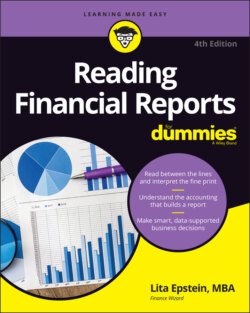Читать книгу Reading Financial Reports For Dummies - Lita Epstein - Страница 48
Checking out the benefits
ОглавлениеPrivate companies maintain absolute control over business operations. With absolute control, owners don't have to worry about what the public thinks of its operations, nor do they have to worry about the quarterly race to meet the numbers to satisfy Wall Street's profit watch. The company's owners are the only ones who worry about profit levels and whether the company is meeting its goals, which they can do in the privacy of a boardroom. Further advantages of private ownership include
Confidentiality: Private companies can keep their records under wraps, unlike public companies, which must file quarterly financial statements with the Securities and Exchange Commission (SEC) and various state agencies. Competitors can take advantage of the information that public companies disclose, whereas private companies can leave their competitors guessing and even hide a short-term problem.Owners of private companies also like the secrecy they can keep about their personal net worth. Although public companies must disclose the number of shares their officers, directors, and major shareholders hold, private companies have no obligation to release these ownership details.
Flexibility: In private companies, family members can easily decide how much to pay one another, whether to allow private loans to one another, and whether to award lucrative fringe benefits or other financial incentives, all without having to worry about shareholder scrutiny. Public companies must answer to their shareholders for any bonuses or other incentives they give to top executives. Private-company owners can take out whatever money they want without worrying about the best interests of outside investors, such as shareholders. Any disagreements the owners have about how they disburse their assets remain behind closed doors.
Greater financial freedom: Private companies can carefully select how to raise money for the business and with whom to make financial arrangements. After public companies offer their stock in the public markets, they have no control over who buys their shares and becomes a future owner. If a private company receives funding from experienced investors, it doesn't face the same scrutiny that a public company does. Publicly disclosed financial statements are required only when stock is sold to the general public, not when shares are traded privately among a small group of investors.
